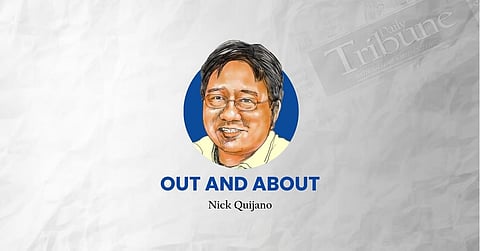
- NEWS
- the EDIT
- COMMENTARY
- BUSINESS
- LIFE
- SHOW
- ACTION
- GLOBAL GOALS
- SNAPS
- DYARYO TIRADA
- MORE

True political analysis requires patience and a willingness to go into details.
Having such political bearings in fact is why we appreciate and value the ongoing Senate Blue Ribbon hearings headed by Senator Panfilo “Ping” Lacson on the flood control thievery.
And in so doing, the correct but a tad cliched metaphor that aptly describes the current hearings is “peeling the onion.”
The “onion” in this case that’s being pared down to its very core are the layer upon layer of an entrenched government-based criminal machine and the many complex illegal operations involved in it.
Insofar as peeling such an intricate smelly onion as the flood control thievery we can momentarily go beyond the initial public outrage and the surface-level rhetorical propaganda of those tarred by the issue, the outermost layer of the “onion.”
Thus far, public outrage has evolved into massive street protests, including even street violence, and towards possible organized resistance; while the self-serving statements and confessions of those so far unmasked are being thoroughly assessed and investigated. Some already have been criminally prosecuted.
Also, as we peel more of the deeper layers of the “onion,” we can probably also set aside for now the difficult historical and political contexts which permitted the flood control syndicate to exist and prosper.
Those historical and political contexts will only come in handy when all of us have gained the necessary appetite for the challenging systemic overhaul of our present dynasty-dominated, neoliberal political system, which has all but proven to have decriminalized corruption.
At any rate, in peeling off other deeper and attention-grabbing “onion” layers for the time being, new information and insights are revealed, bringing us closer to the central core of the systemic and legal failures the flood control and infrastructure thievery vomited.
Of these systemic and legal failures there are aplenty. Some of them striking enough to capture the public’s imagination and some subtle enough to escape serious notice.
In the past few days, for instance, one striking example are the heated debates centering on who among those who have been tagged in the thievery gets to be made a state witness, particularly on whether they should immediately return their ill-gotten loot or not.
Aside from the state witness law, another mystery being unraveled is why lawmakers are already being politically “accommodated” even as the preparation of the national budget is still in its early stages.
And, still another instance is the anomalous role of casinos and banks in becoming cash pipelines for the stolen billions of the alleged perpetrators of the flood control thievery.
All these revelations, and many others besides, severely test our patience and tempt us to pick up knives and rashly chop the “onion,” no matter how teary-eyed we may get doing it.
Many might justify chopping on the pretext of seeing the whole thing as a pyramid — where the notoriously privileged ruling political class is sitting at its corrupt apex — which needs to be toppled, even without solid evidence to go by.
Cutting the onion outright, however, might also be myopic.
Peeling the onion, in fact, highlights the inherent complexity of politics; while allowing us to hold and see the system as a whole, which in turn reveals our collective blind spots and wrong assumptions about our political system.
Peeling the onion, in short, prevents us from making the same mistakes when we try to build an incorruptible government.
